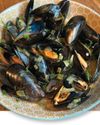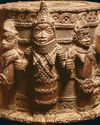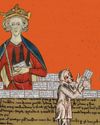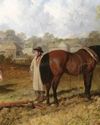
One of the most unlikely episodes in British television history unfolded on an isolated Devon hillside one evening in September 1986. It was then that around 60 inmates at Dartmoor prison, who had been spending “free association” watching the BBC’s hit drama serial EastEnders, started rioting. Chairs and tables were broken up, and lightbulbs smashed. Afterwards, officials launched an urgent investigation. Had the poor quality of food just served for supper triggered the outburst? Not, it seemed, in this case. It had been TV – or rather, its temporary absence – that had apparently caused the fracas.
On the night in question, EastEnders had featured one of the main characters, the teenage mother Michelle Fowler, jilt her sweetheart, Lofty, at the altar and declare her love instead for the father of her baby: the landlord of the Queen Vic pub, “Dirty Den” Watts. In soap-opera terms, it was a classic moment of high drama, and around 20 million Britons – roughly half the adult population of the entire country – had tuned in. At the crucial moment, all reception in Dartmoor Prison had been lost – the latest in a growing list of reception failures at the institution. By the time the picture returned to normal, all the inmates could see was Lofty crying alone in his bedsit.
In less than two years after its February 1985 launch, EastEnders had become compulsive viewing. Indeed, it had been designed by the BBC with this goal in mind – conceived as a finely honed weapon in an ongoing TV ratings war that the corporation desperately needed to win.
Bu hikaye BBC History UK dergisinin August 2022 sayısından alınmıştır.
Start your 7-day Magzter GOLD free trial to access thousands of curated premium stories, and 9,000+ magazines and newspapers.
Already a subscriber ? Giriş Yap
Bu hikaye BBC History UK dergisinin August 2022 sayısından alınmıştır.
Start your 7-day Magzter GOLD free trial to access thousands of curated premium stories, and 9,000+ magazines and newspapers.
Already a subscriber? Giriş Yap

Viking mussels
ELEANOR BARNETT digs into archaeological research to recreate a Viking-cum-AngloSaxon seafood dish from medieval York

Fingers, frog's and fairies
Fortune telling was all the rage in the 16th and 17th centuries, and practitioners would stop at nothing to tap in to the supernatural. Martha McGill tells a story of Highland seers, tarot cards and encounters with the spirit world

Nothing matches being with Alexander the Great on foot in the Hindu Kush
AT OUR LITTLE FILM COMPANY, MAYA VISION, we recently took the decision to digitise all of the rushes of our key films so that we could dispose of hundreds of boxes of tapes that had been kept in storage, throwing out stuff we thought we would never need again.

Library of the dead
Highgate Cemetery, created as a fashionable resting place for wealthy Victorian dead, is a veritable who's who of London's great and good. PETER ROSS roams the avenues of this most atmospheric necropolis

Slavery, exploitation and racism. These tragedies have long dominated histories of Africa. But there's another way to tell this story. And it's one that puts Africans right at the centre of their continent's extraordinarily rich and vibrant past
An 1414, in the Chinese city of Nanjing, a giraffe caused a stir. Amid a crowd of shocked, noble spectators, an official, leading the creature via a rope tied round its face, presented it to China's Yongle emperor. His officials said it was a qilin - an auspicious unicorn - which his sage governance had made appear.

England's forgotten hero
When the Hundred Years' War was reaching a climax, one man was fighting tenaciously to secure the English claim to the French crown. So why, asks Joanna Arman, is Henry V's formidable brother, John, Duke of Bedford, not better known?

HENRY III AND THE MAGNA CARTA THAT MATTERED
King John's sealing of a charter at Runnymede in 1215 is one of the most feted moments of the Middle Ages. Yet, writes David Carpenter, it was the charter issued by his son 10 years later that became fundamental to England's history

Gutenberg publishes a pioneering new book
‘The printing press triggers an information revolution

How empire ruptured rural Britain
We know that enslaved Africans and their descendants suffered in the distant colonies of empire. But, as Corinne Fowler explains, the colonial system also had dire impacts on people in the countryside of the 'motherland'

"I FELT VERY ALONE IN A WORLD GONE HORRIBLY MAD"
It was a moment of possibilities, dislocation and dread. Dan Todman tells the story of the 1.5 million urban Britons evacuated to the countryside at the start of the Second World War